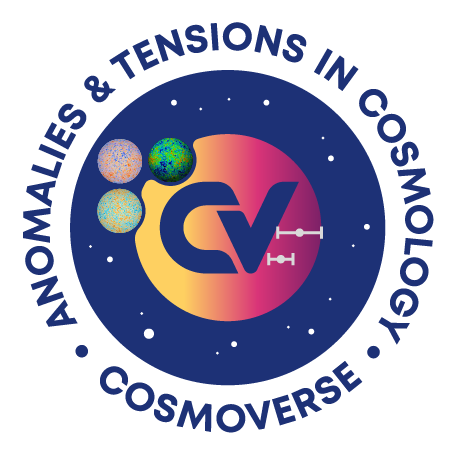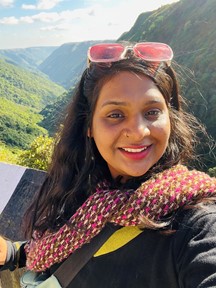What is your name, affiliation, academic position, and job title?
My name is Yashi. I am a PhD student at the Indian Institute of Science (IISc), Bangalore, India.
What is your journey?
I come from Kanpur, a city in Uttar Pradesh, India. I completed my Bachelor’s degree at CSJM University in my hometown and subsequently pursued my Master’s in Physics at Banaras Hindu University, Varanasi. Following this, I joined the Joint Astronomy Programme at IISc, where I am currently in the final year of my PhD.
What is your field of research and/or what project are you involved in?
In my PhD research, I am primarily focused on understanding and addressing the tensions and anomalies within the standard model of cosmology known as the Lambda-Cold Dark Matter (LCDM) model. This simplest six-parameter model, based on Einstein’s General Theory of Relativity, is increasingly challenged by discrepancies between its predictions and late universe observations. I am predominantly working on understanding the Hubble tension and cosmological growth tension by working in the framework of modified gravity theories, exploring dynamical dark energy scenarios, and confronting them with observations.
What are your research plans?
Firstly, of course, continuing my exploration and deepening my understanding of cosmological tensions. This research area holds immense significance in the current epoch of precision cosmology, challenging our understanding of the dark sector and the theory of gravity. Next, I plan to enhance my proficiency in data analysis techniques, focusing on finding observational signatures of new physics and testing the theory of gravity through upcoming gravitational wave observations and galaxy surveys. Particularly, I am excited about the DESI and Euclid missions, which are already beginning to unveil interesting features of dark energy.
How does CosmoVerse fit within those plans?
CosmoVerse is becoming a central hub focused on strengthening our understanding of the cosmos and connecting cosmologists worldwide. It is an excellent community for young researchers like me to get updated with recent trends, share resources, participate in scientific discussions, and foster collaborations. Excited to be a part of this community, I look forward to contributing and benefiting from its vibrant atmosphere.
What new skills would you like to learn in the next year?
I aspire to learn machine learning techniques to upgrade my data analysis skills, which are becoming crucial for the effective handling of large cosmological data.
What are the most exciting open questions in your research area?
For me, the most exciting question is related to the nature of dark energy, which currently constitutes 70 per cent of the energy budget of our universe. Is it really so simple to be described by a cosmological constant with constant energy density, or is it dynamical with complex interactions with matter or gravity influencing the evolution of structures in the late universe? Furthermore, could it be connected to the origin of cosmic tensions?
What advances or new results are you excited about or looking forward to?
I am fascinated by the recent trend of utilising artificial intelligence and machine learning algorithms in astronomy, particularly for data analysis. These hold the potential to revolutionise the era of precision cosmology further, especially given the ever-increasing amount of observational data. In terms of new results, as I mentioned earlier, I am eager about revelations from DESI and Euclid. Notably, early data from DESI already hint towards a dynamical nature of dark energy.
What is your view on cosmic tensions? How does your work connect with this open question in the community?
Cosmic tensions are certainly unavoidable and, indeed, a pivotal topic of exploration at present. Whether these tensions pertain to observational systematics and uncertainties or if they hint towards the emergence of novel physics is a critical debate within the cosmology community. As time progresses and more data becomes available, it is expected that this understanding will evolve, improving our understanding of the cosmos. My research projects thus far are also aligned with the following interests, and I eagerly anticipate continuing my exploration in this direction.
What role do you think a community network like CosmoVerse can play in developing theoretical astroparticle physics and cosmology?
In my opinion, the initiatives of the CosmoVerse community, like online seminars, dedicated working groups, journal club meetings and a fantastic webpage with links to necessary resources, have already started to contribute to the research in astronomy. I look forward to more activities, such as astronomy schools for graduate students and providing access to recorded lectures. Additionally, I also commend the efforts of the community in promoting science to the general public through articles and simplified study materials in astronomy.
What do you like and dislike about being a scientist?
Certainly, the cool thing about being a scientist lies in its unique nature. You engage in problem-solving, discuss and collaborate, acquire new skills, and explore diverse possibilities to approach the problem. Despite various setbacks, the journey is filled with the excitement of seeing the expected (or unexpected) results and, of course, the freedom to choose different research problems. However, the disheartening hurdles to the scientific career are the issues of financial instabilities and job insecurities. Particularly starting from the later stage of PhD to the postdoctoral phase, insufficient funding and limited opportunities lower the enthusiasm of young researchers and prompt many to reconsider their career paths.
What’s your favourite food? Why?
I will mention two dishes which I love most: Rajma-Chawal, a North Indian specialty, and Uttapam, a delightful South Indian creation.
Your favourite scientist and/or science fiction film?
Interstellar by Christopher Nolan.
How do you relax after a hard day of work?
Usually, I have plenty of options to relax after a hard day, depending on how I feel. These include singing and cooking, practicing calming yoga, enjoying the company of friends, and, most cherished of all, taking a peaceful walk on the beautiful green IISc campus.
In your view, what’s the most important challenge that humanity faces currently?
In my opinion, the most alarming challenge to humanity at present is climate change, which continues to escalate with devastating consequences.

